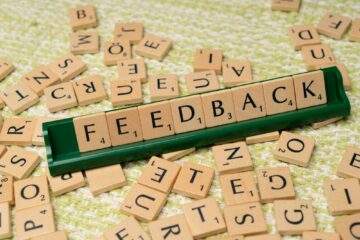Atlas Corps Community Action Plan for northern Nigeria was a community give-back project by returned Atlas Fellows, which was supported by the Nigerian Embassy in Abuja. The Atlas Corps office in Washington DC facilitated the small grant that supported fellows’ project in their home countries. I returned to Nigeria in January after completing my one-year fellowship in the US, and by February, Atlas office reached out to me to submit my proposal for a project in my community. I proposed a peacebuilding training seminar for youths from selected metro communities in Kano State, against political violence and violent extremism.
During my Atlas fellowship training on nonprofit leadership, through my host organization which worked on religious freedom, I had researched and specialized on religious freedom and peacebuilding. Hence upon my return to my hometown of Kano, I noticed an evident rise in violent political campaigns as Nigeria geared toward general elections coming up early 2019. Having identified the threat, I assumed the task of preventing Kano youths from participating in violent political activates and mass atrocity against rival politicians and the civilians.
With my proposal approved for funding by Atlas Corps, I partnered the Kano State branch of the Association of Nigerian Authors (ANA), and through them, a local anti-drug-abuse organization known as Youth Awareness Forum on Drug Abuse (YAFODA). After selecting twelve prospective participants from three Kano metropolitan areas, half of which were members of ANA Kano, I commenced training on February 27, at the American Corner in Kano. Dubbed “Youth Policy-Forum Lab”, the first session of the lab seminars held for three hours in the Tuesday afternoon. Twelve youths within the age bracket of 18-36 years attended as participants, while four representatives of partner organizations attended as observers. To exploit the intellectual diversity, both participants and observers took part in all lab activities in the form of cross-learning.
The day-one lab session started at 14:50 local time with individual introduction by every participant, who were also asked to reveal the community they represented. Together we formed a roundtable and I opened the session by asking one participant to share his personal experience of political violence. A participant, Muhammad Ghali narrated his experience of violent political event, which occurred in Kano during Nigeria’s general elections of 2011. Many of the participants revealed their political party membership while a few others declined. I then informed them about lab norms and sought their consent for use of media from the seminar, after which they filled in the first evaluation form of the day.
The first seminar activity we embarked on was my presentation on the topic of political thuggery in Nigeria, using excerpt from a paper on “Political Thuggery And The Crisis Of Confidence Among Youths In Nigeria” by Omogho Esiri, which was published in the Journal Of Humanities And Social Science. My presentation centered on definition of youth and thuggery, political thuggery, history and causes of political thuggery in Nigeria. I concluded my interactive presentation by itemizing the following three causes of violent political activities in Kano, thus political godfathers who promote “do or die Ideological politics”, brazen use of money to buy political loyalty and win elections, as well as vulnerable youths who are unemployed and/or uneducated.

These identified causes of political violence became the subject of discussion in the panel discussion that concluded the day’s program. The panel session with three panelists was moderated by Abdulkadir Muhammad of YAFODA, as the rest of the group listened. As a final activity, all participants filled in a post-event evaluation and a feedback form before closing and debrief.
In subsequent sessions held on March 31, and April 28, the lab proceedings included guest presentation by Dr. Michael Sodipo, the founder of Peace Initiative Network who took on the workshop participants about his experience with conflict and peacebuilding in Kano and northern Nigeria. During the course of the three sessions of the youth policy lab, a total of 21 persons participated, as more people requested to join succeeding sessions.
As a final activity on the last day of the lab, all participants from the three metro areas of Kano agreed on a set of policy statements, tagged “Youth Action Plans Against Political Violence and Violent Extremism, functionally abbreviated to YAP. The YAP contained ‘personal and community policy’ points against political violence and violent extremism, which will help the participants’ commitment to promoting peacebuilding and preventing violent conflicts in their localities. The YAP included statements about the participants’ readiness “to engage at least one youth in my community on political thuggery and VE”, “to promote non-violent methods of political agitation”, “to campaign against drug use and abuse”, “to sensitize my community about peaceful political campaign”, and “to counter ideologies that justify violence on unarmed people”.

On the final day of the Atlas Corps-sponsored community action project on political violence and violent extremism in Kano state, twelve youths— four young women and eight men were issued with certificates of attendance. Two selected participants Marjaan Jibril Ahmad and Ismail Auwal gave a video presentation of their experience in the three sessions of the policy lab.



